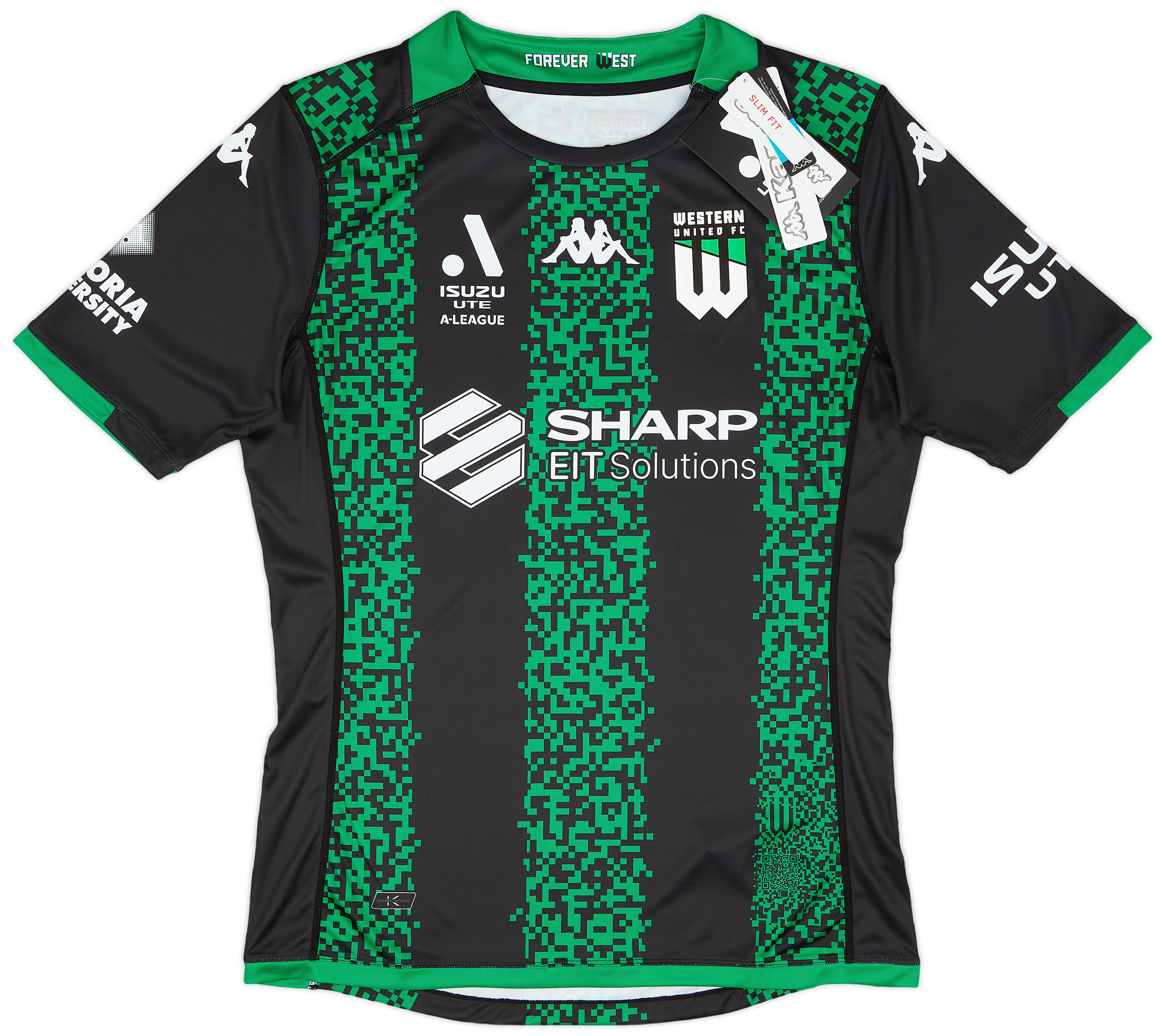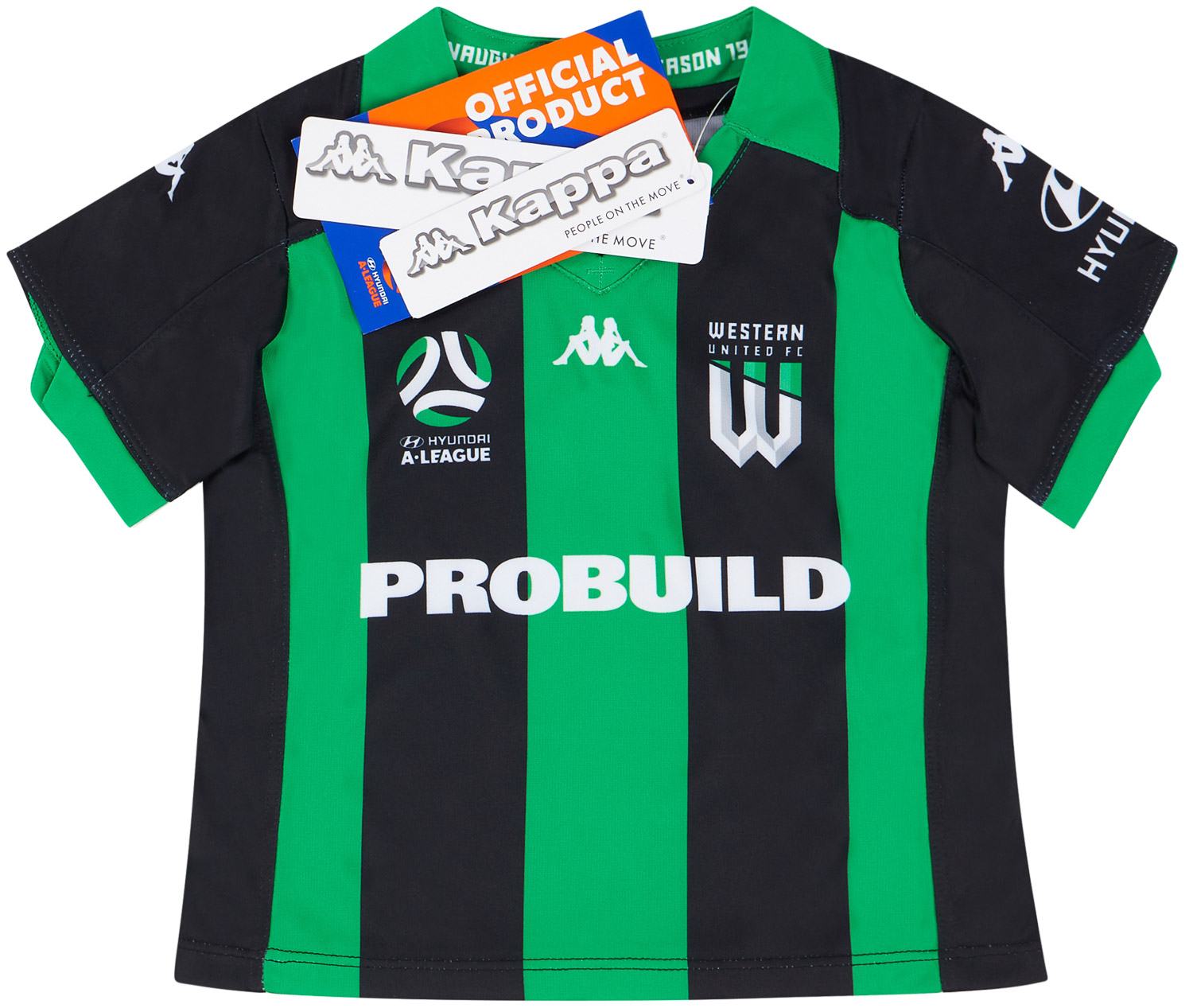Western United
Introduction Founded in 2018, Western United Football Club has quickly carved its niche in Australian football by embodying the spirit of the Western suburbs of Melbourne. As a relatively new entrant in the A-League Men (ALM), the club represents a dynamic blend of community engagement, local culture, and sporting ambition. With vibrant colors of green […]
2023-24 Western United Home Shirt
70.99£ - ca: €84
2023-24 Western United Away Shirt
70.99£ - ca: €84
2023-24 Western United GK Shirt
58.99£ - ca: €70
2020-21 Western United Away Shirt - 8/10 - (XS)
47.99£ - ca: €57
2020-21 Western United GK S/S Shirt - NEW
23.99£ - ca: €28
2019-20 Western United Away Shirt (Womens)
11.99£ - ca: €14
2019-20 Western United Home Shirt (Womens)
7.99£ - ca: €9
2019-20 Western United Away Shirt BABY
6.99£ - ca: €8
2019-20 Western United Home Shirt (6 Months)
6.99£ - ca: €8
Introduction
Founded in 2018, Western United Football Club has quickly carved its niche in Australian football by embodying the spirit of the Western suburbs of Melbourne. As a relatively new entrant in the A-League Men (ALM), the club represents a dynamic blend of community engagement, local culture, and sporting ambition. With vibrant colors of green and black, Western United aims to build a legacy in Australian football while fostering a strong connection with its supporters and the broader community.
Club History
Western United was established in 2018, following the A-League’s ambition to expand its reach within Victoria. The club began playing in the 2019-2020 season under the guidance of coach Mark Rudan. Situated in the western suburbs, Western United was created to fill a void in a region known for its passionate sports culture yet lacking a professional football team. Their first home games were held at the esteemed Marvel Stadium, before transitioning to their purpose-built venue, the Western United Stadium, in 2020. This modern facility not only serves as the club’s home ground but also as a community-centric hub, further solidifying the club’s roots in the local area.
Achievements
Despite its youth, Western United has made a notable impact in Australian football. The club’s most significant achievement came when they won the A-League Championship during the 2020-2021 season. In just their second year, they defeated Sydney FC in a thrilling Grand Final at Bankwest Stadium, showcasing exceptional talent and resilience. This victory marked them as one of the fastest clubs to achieve such success, placing them in the annals of football history. Additionally, Western United secured a spot in international competitions, competing in the AFC Cup, representing Australia against clubs from Asia, which further highlights their growing stature.
Significant Players and Matches
Throughout its brief history, Western United has been home to several notable players who have made significant contributions on the field. One of the standout figures is Alessandro Diamanti, an experienced Italian playmaker who joined the club in 2019. His flair and vision not only earned him the captaincy but also turned him into a fan favorite, leading the team to critical victories and showcasing a higher level of play. Another key player is former Melbourne Victory star, Besart Berisha, who brought valuable experience and goal-scoring prowess to the squad, playing a crucial role in their championship victory.
Some landmark matches in the club’s history include the 2021 A-League Grand Final, where they overcame Sydney FC in a dramatic showdown. Additionally, their first-ever match against Melbourne Victory, a fierce local rivalry, drew significant attention and showcased the burgeoning rivalry in Melbourne’s footballing landscape.
Cultural Impact
Western United has made remarkable strides in establishing a robust fanbase and cultural identity. The club actively engages with the local community through various programs aimed at promoting football at the grassroots level. These initiatives include youth academies, school programs, and community events that foster a deeper connection between the club and its supporters. The creation of the “Western United Army,” the official fan group, has cultivated a vibrant and supportive atmosphere at matches, contributing to a unique football culture in the western suburbs.
Moreover, the club’s commitment to diversity and inclusivity resonates strongly within its community, reflecting the multicultural fabric of the region. This cultural impact extends beyond the pitch, as Western United positions itself as not merely a football club but a beacon of unity, pride, and representation for the local populace.
Conclusion
In just a few short years, Western United Football Club has established itself as a significant player in Australian football. From its championship-winning season to its commitment to community engagement, the club embodies the aspirations and spirit of its supporters. As the club continues to grow, it is poised to leave an indelible mark on football history, contributing not only to the sport itself but also to the culture and community of the western suburbs of Melbourne. With a bright future ahead, Western United’s journey is one to watch as they aim for continued success on and off the field.








